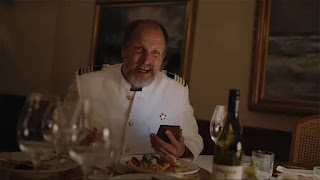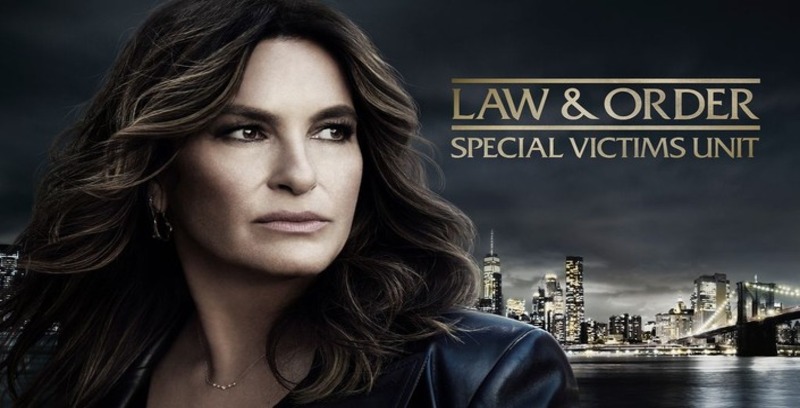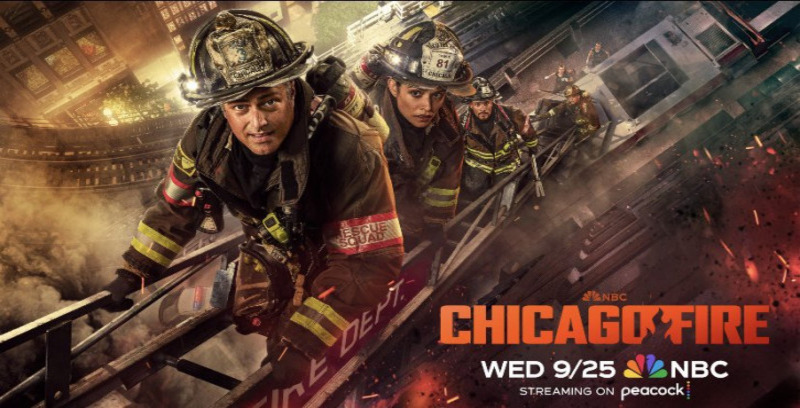Framed as a biting satire of the rich and an almost-worthy addition to the eat-the-rich genre, Triangle of Sadness can't quite pull as much punches plot wise as it wants to - Ruben Östlund's class comedy takes us on board a multi-million dollar luxury yacht, which plays host to Russian capitalists, weapons manufacturers and a young couple, whose relationship is thawing at the seams - starting from something little as arguing over who pays the bill, and threatens to escalate into something greater - especially when the ship encounters issues of its own that upends the safety of the whole voyage.
This film puts privilege through the wire and forces the elite out of their comfort zone in a brilliant way, a spectacular puke-inducing sequence is rife with authenticity that captures the true horror of people being sick in a crowded room on a boat - once one person throws up, the rest will follow - and the wave is horrifying; sure to pinpoint Triangle of Sadness down as the new ultimate watch-it-on-a-boat in stormy weather film. The film is at its strongest in these moments of pure chaos - in by far and away its best sequence, a drunken American socialist captain with a guilty consciousness played by Woody Harrelson argues with the Russian capitalist - a greedy, callous Zlatko Burić - with both taking it in turns to look up quotes from those who share their respective ideologies, Harrleson's American quoting Lenin and Marx to a Russian who quotes back Kennedy leads to a fascinating display of mismatched ideology, but then Triangle of Sadness doesn't really take it any further than that - its critique largely feels surface level - designed just to turn the dynamic on its head, and then faces the question, you've done that - now what?
Its main thing that it has going to is a love letter to the working class above all else, but there's nothing new that it has to say and for a film that's 148 minutes long Triangle of Sadness in no way shape or form earns that runtime. The third act is hopelessly long and dragged out beyond all measure of redemption, and it comes after a zero-to-one hundred escalation where it changes in the space of seconds - like the film is almost missing a stopping point between the middle and third act. It feels blunt - as blunt in its ending, and almost a bit too cheap - there are better films that have dealt with familiar themes this year - Rian Johnson's Glass Onion: A Knives Out Mystery has an actual plot to back up the 'rich people also throw up too' commentary, and Aga Woszczynska's Silent Land does the class commentary more effectively. There's no nuance here and there's nothing beyond shock value - Östlund's scenes look well crafted in the moment but feel entirely superficial beyond that.
The performances are naturally awkward and the cast of mostly unknowns lean into their role with bravado. Harris Dickinson's Carl is great at capturing his facial expressions, he's a male model after all - and the mismatch between Carl and his girlfriend Yaya, played by a scene-stealing Charlbi Dean - is hilarious. Dolly de Leon may yet be the film's true highlight as Abigail - one of the service staff - who comes into her own in the third act, and the performances are where the film cashes in on itself strongly - all actors are fully in tune with what the film is going for and delight in poking fun at the common archetypes. This must have been a really fun film to shoot, if nothing else - and it looks spectacular thanks to the work of Fredrik Wenzel. See it if you get the chance - but there are better films this year.
Sign Up for the SpoilerTV Newsletter where we talk all things TV!
Recommendations
Subscribe to:
Post Comments (Atom)
















